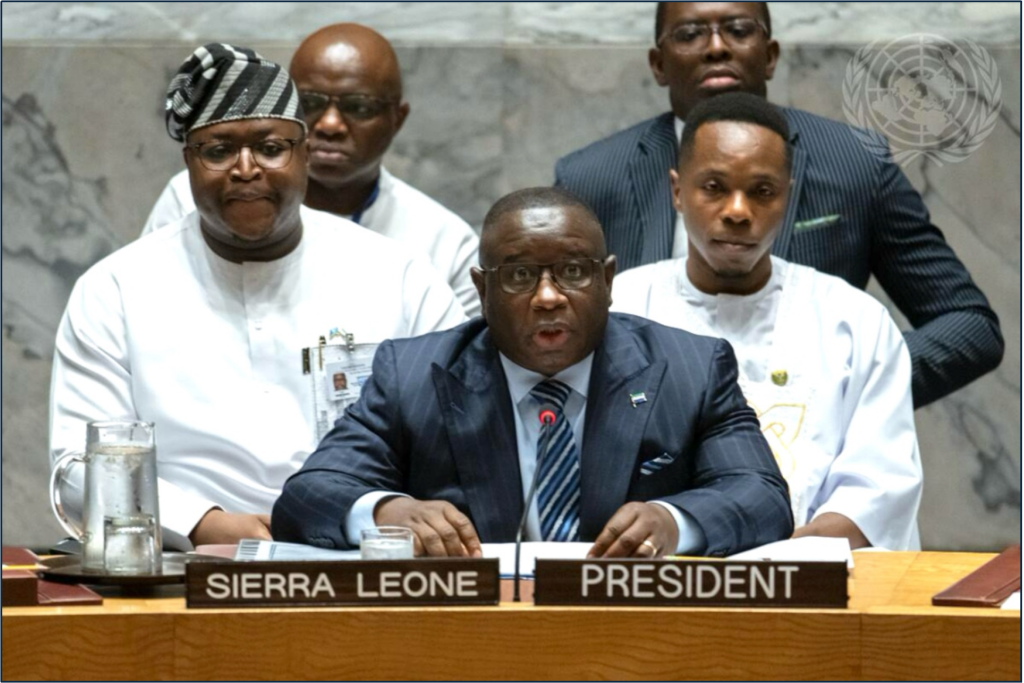His Excellency Dr Julius Maada Bio speaking at the UN Security Council
By Mohamed Kelfala Fofanah
During his speech at the United Nations Security Council debate on the maintenance of international peace and security, His Excellency Dr Julius Maada Bio advocated for Africa to have two permanent seats in the UN Security Council, as well as two additional non-permanent seats. He emphasized that the African Union should have the authority to choose the African Permanent Members.
President Bio addressed the historical injustice and the need to enhance Africa’s effective representation within the UN Security Council. He stated that Africa demands the abolition of the veto, but if it is to be retained, it should be extended to all new Permanent Members as a matter of justice. The African Union believes that rectifying this historical injustice will promote greater fairness, equity, and equality in global governance, ultimately ensuring the legitimacy and effectiveness of the Council.
The President highlighted that Africa’s experiences and perspectives are invaluable in shaping comprehensive and effective solutions to global challenges. He pointed out that Africa has been marginalized in global decision-making processes due to historical injustices stemming from colonial legacies and power imbalances that persist to this day.
“The lack of sovereignty and political representation during the colonial period has had lasting effects on Africa’s ability to shape global policies and institutions.”
President Bio emphasized that the systemic bias against Africa perpetuates a cycle of marginalization and reinforces the false notion of Africa as a passive actor in shaping global affairs. He stressed that the absence of permanent African representation in the Security Council leads to decisions being made without sufficient African input, resulting in policies that may not align with the needs and aspirations of African nations.
The issue of UN Security Council reform has been a longstanding item on the agenda of the UN General Assembly, with the work of the open-ended working group starting over 30 years ago. President Bio called for an end date to this reform justice movement for Africa, stating that it is absurd for the UN to enter its eighth decade of existence with the injustice against Africa still unresolved. He urged the UN to prioritize Africa’s concerns, including enhanced representation, within the framework of Security Council reform.
President Bio emphasized that the time for change is now, and Africa’s call for enhanced representation in global governance structures, especially the UN Security Council, is a demand for justice, equity, and a more inclusive, effective, and legitimate international governance system. He called on the Council and UN Member States to champion the call for Africa to be treated as a special case and priority in the reform process.
President Bio stated that by rectifying the historical injustice against Africa, the UN has an opportunity to forge a more just and inclusive world order that honours the dignity and aspirations of all nations. He urged for action to be taken promptly, as Africa cannot wait any longer for its voice to be heard and its demands for justice and equity to be met.
President Bio’s call for increased African representation in the UN Security Council highlights the importance of addressing historical injustices and promoting fairness, equity, and inclusivity in global governance. “Africa’s perspectives and experiences are essential in shaping global solutions to challenges, and the UN must prioritize Africa’s concerns in its reform efforts. The time for change is now, and Africa’s voice must be heard in shaping a more just and inclusive world order,” he stated.
